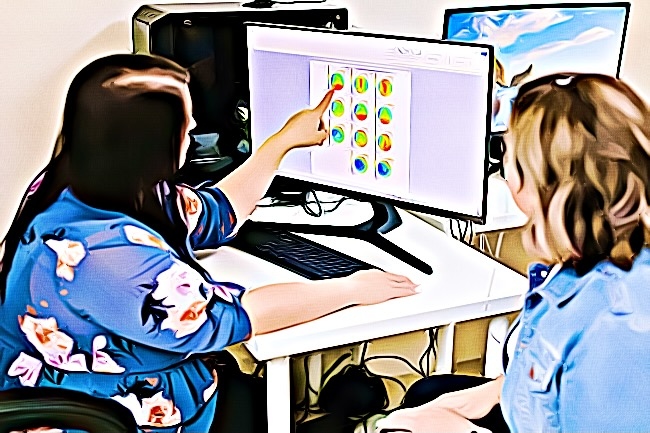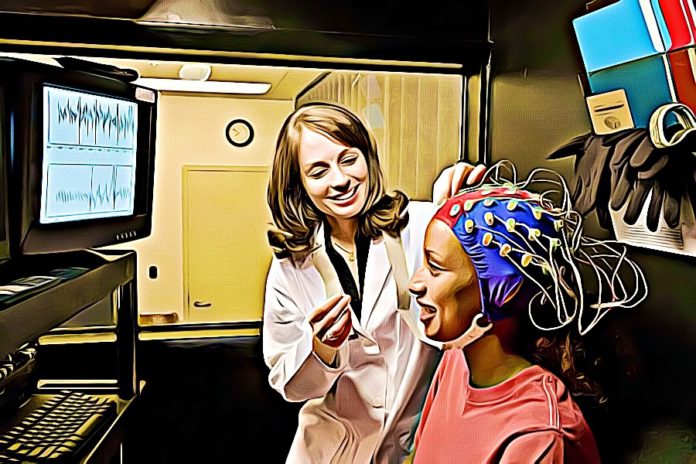The brain is an enigmatic organ that holds many mysteries, and questions about it continue to puzzle scientists today. It controls everything we think, feel, and do, yet we still have a lot to learn about how it works.
Researchers continue to study its parts and their associated functions, as well as ways in which we can better manage it. In that pursuit, many methods have been developed to improve its processes and mitigate the effects of numerous mental illnesses.
One treatment method that is now rising in popularity is neurotherapy or neurofeedback. It is a relatively young field, but it shows promising results in terms of improving brain function and managing psychiatric conditions. In this article, we will discuss how this form of therapy can help people recover from various illnesses, including addiction.
What Is Neurotherapy?
At any given time and in any given activity, certain parts of the brain generate electrical activity or what is commonly called “brain waves” that control specific functions and actions.
Neurotherapy is a drug-free treatment that involves measuring and managing these electrical signals given off by your nerve cells (neurons). It is sometimes referred to as neurofeedback or electroencephalogram (EEG) biofeedback.
Neurotherapy typically relies on the use of an EEG, which is a device that helps detect and illustrate electrical activity in the brain. It uses metal discs or electrodes attached to the scalp to gather this information, and the results appear as wavy lines on the recording.
By displaying real-time records of a person’s brain wave activity, neurotherapy practitioners can collect information regarding that individual’s patterns of thinking, feeling, and behavior. They can detect clinical symptoms and help a person consciously train their brain into functioning in more healthy ways.
This type of therapy is grounded in the fact that many mental illnesses have associated abnormalities in their brain waves. Overactivity or underactivity in various regions of the brain are often symptoms of different psychiatric conditions, such as obsessive-compulsive disorder (OCD), depression, anxiety, attention deficit hyperactivity disorder (ADHD), and substance abuse disorder.
What Are the Types of Neurotherapy?
Several kinds of neurofeedback methods exist, and each type can treat different mental conditions. Here are some well-known types of this treatment method:
- Functional magnetic resonance imaging (fMRI)
- Slow cortical potential neurofeedback (SCP-NF)
- Live Z-score neurofeedback
- Hemoencephalography (HEG) neurofeedback
- Low-energy neurofeedback system (LENS)
How Does Neurotherapy Work?
Neurotherapy typically works when practitioners teach individuals to produce more efficient and healthy EEG patterns. The therapists collect data on the patient’s brain waves using the electrodes placed on the scalp. This is similar to a doctor using a stethoscope to hear a person’s breathing and heartbeats.
The therapists then train the patient’s brain waves through the use of auditory and visual stimuli like music, video games, movies, and other activities that require specific brain functions. Then, the EEG will detect activity in certain areas of the brain in real-time.
The real-time screening will tell a patient whether or not they’re releasing favorable electrical signals. They will need to train to keep the readings favorable. Over time, they can gain control of this ability and learn to produce more positive brain waves.
Sessions generally last around 30 to 60 minutes over numerous sessions. The number of sessions required will vary depending on a person’s individual response to therapy, but it’s rare for a patient to need more than 40.
Although the therapy may seem simple, it can help a person learn how to improve their brain functions. Through this treatment, they can train themselves to respond in more healthy manners to stress and overwhelming emotions. Their improved mindset can help them overcome numerous mental struggles that contribute to various psychiatric conditions.

Who Can Benefit from Neurofeedback?
This type of treatment focuses on regulating brain activity, which can help with a wide variety of mental conditions and their associated symptoms. Patients experiencing stress, mood disorders, anxiety, fatigue, chronic pain, ADHD, OCD, post-traumatic stress disorder (PTSD), and sleep disorders can benefit from its effects. The brain training in neurofeedback can also benefit people with learning and developmental disorders.
One notable condition that neurotherapy can help with is substance use disorder, wherein patients suffer from withdrawal symptoms and other signs associated with addiction. It promotes a healthier mindset that can help a person abstain from addictive substances.
What Are the Expected Outcomes of Neurotherapy?
Because there are numerous variations of neurofeedback, the expected outcomes also tend to differ depending on the specific protocol. Many patients report significant improvements in concentration, memory, sleep, and mental clarity. They also experience reduced anxiety and impulsivity. Addiction recovery is another interesting outcome of this treatment.
This form of therapy is unique because it does not require the use of medications, making it a viable solution for all ages and numerous types of conditions. It also does not require any form of surgical procedure. The EEG does not affect the brain’s electrical activity and only acts as a receiver.
The outcomes of neurofeedback are long-lasting and will manifest even long after the sessions have stopped. Because the patients have trained their brains to better cope with numerous life demands, they will likely continue to exhibit improved functions over time.
Can Neurotherapy Really Help with Addiction Recovery?
This type of treatment is readily available in the United States as an effective treatment for addiction. It is beneficial for patients suffering from substance abuse disorders because it helps keep track of the individual’s brain wave responses to different actions. It detects unfavorable signals and assists them in learning to correct their responses.
With this type of therapy, individuals with addiction can train themselves to self-regulate, mitigate their cravings, and reduce impulsive behaviors. They can learn new coping mechanisms and skills to better control themselves, even if they are around triggering situations and substances.
The long-lasting effects of this therapy are impressive, but an individual has to set realistic standards because change will not happen right away. It’s a slow and steady process that requires diligence and discipline.
There is no single cure for addiction due to its highly complex nature, so neurotherapy achieves its best effects when combined with other forms of treatment, such as counseling and other drug rehabilitation techniques.
What Are the Pros and Cons of Neurofeedback?
The significant advantages of neurotherapy include:
- Non-Invasive Procedures: Because EEG biofeedback is non-invasive and does not require surgery or medications, it has little to no risk of complications.
- Long-Term Brain Improvements: This therapy helps improve emotional resilience, attention, motivation, executive functions, and positive habits over long periods.
- Effectiveness against a Wide Range of Conditions: Neurofeedback is a viable treatment for numerous psychiatric illnesses, from learning problems to mood disorders and addiction.
Like most treatments, it also has its drawbacks, such as:
- Time-Intensiveness: This treatment typically requires 30 to 40 sessions to complete, so it may take a long while to see results.
- Months of Hard Work: Related to the item above, it will take a lot of effort and dedication to complete this therapy, but the long-term benefits are worth it.
- Lack of Insurance Coverage: Many coverages do not recognize this treatment, and patients may have to pay out of pocket.
Seek Drug Rehabilitation Today
Neurotherapy is a viable treatment for many mental conditions, as it helps train the brain to form better habits and act more favorably even in stressful situations. Although it may be time-intensive, its benefits are well worth the effort. It’s an excellent approach to addiction treatment that is now becoming increasingly available in many areas.
Source: https://www.ncbi.nlm.nih.gov/pmc/articles/PMC8460707/
















